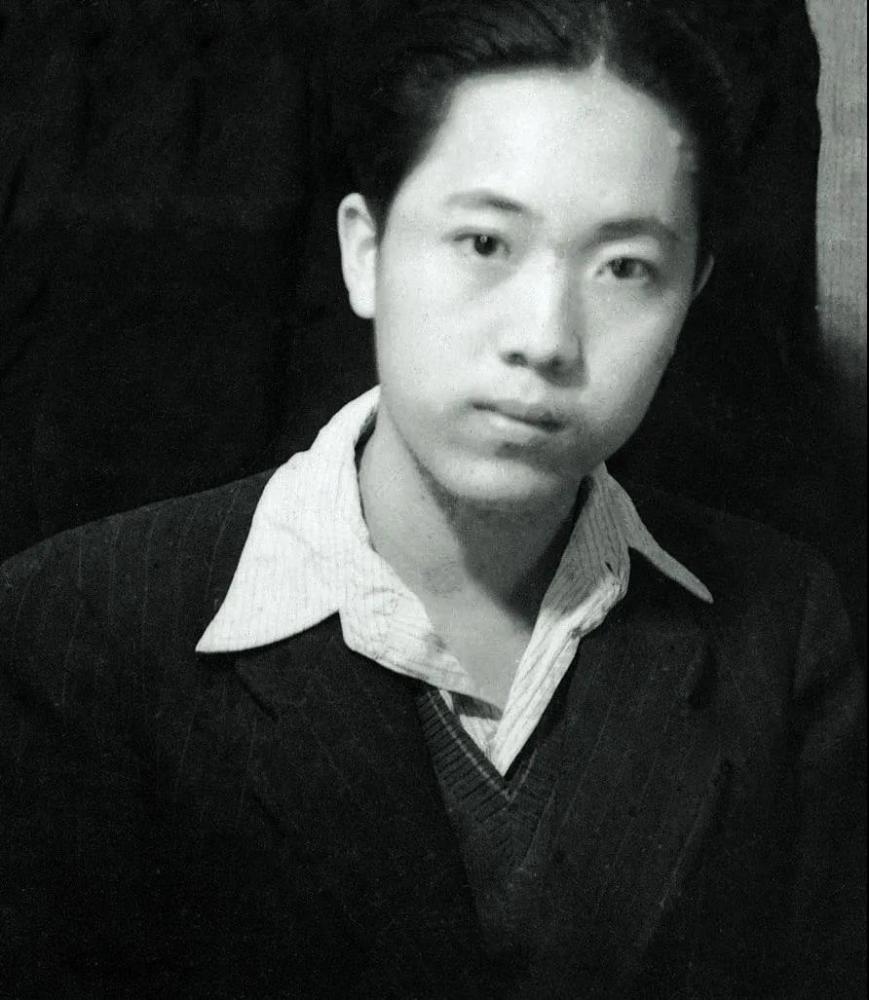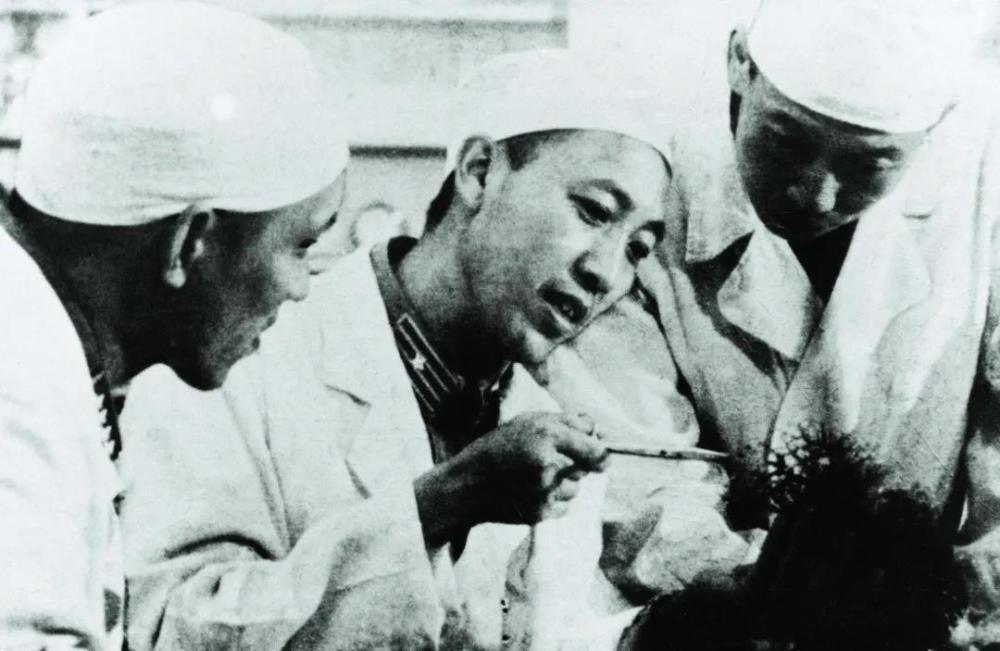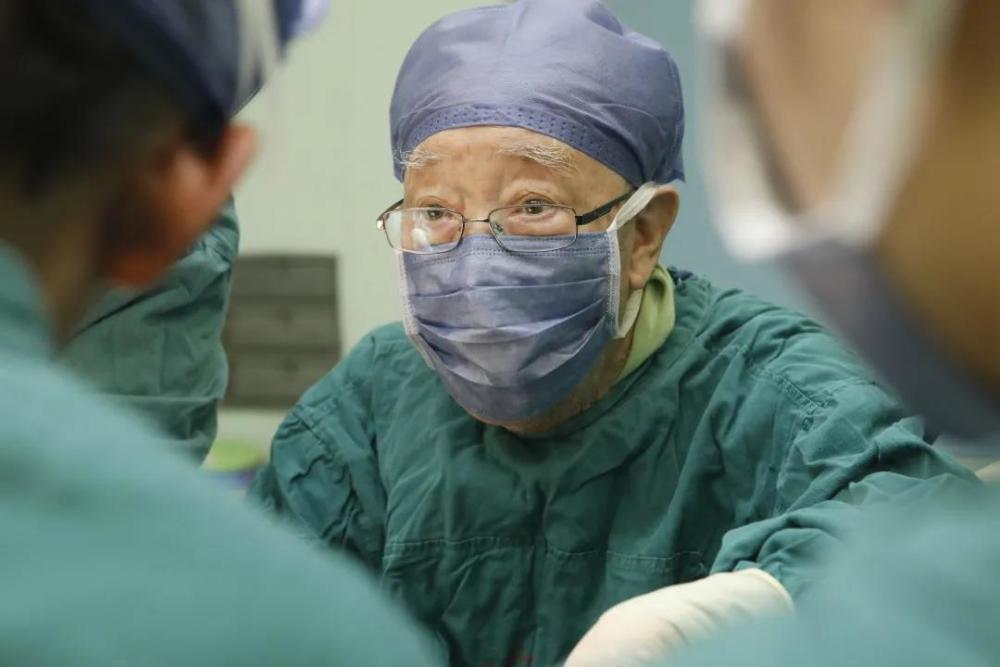
By Li Chenyan
李晨琰
2021年5月22日,中国科学院院士、中国肝脏外科的开拓者和主要创始人、原第二军医大学副校长吴孟超因病医治无效,于上海逝世,享年99岁。
On May 22, 2021, Former Vice President of the Chinese PLA Naval Medical University Rear Admiral Wu Mengchao, world-famous Chinese hepatobiliary surgery scientist and surgeon, also an academician at the Chinese Academy of Sciences, passed away in Shanghai at the age of 99 .
吴孟超被誉为“中国肝胆外科之父”。从医70多年,吴孟超自主创新30多项重大医学成果,创建我国肝脏外科理论基础,主刀完成包括我国第一台中肝叶切除术在内的1.6万余台重大肝脏手术,使我国肝脏疾病的诊断准确率、手术成功率和术后存活率均达世界领先水平,肝癌患者术后最长存活已达45年。
Known as “Father of Chinese Hepatobiliary Surgery”, Wu Mengchao, during his 70-plus-year medical career, made more than 30 significant medical achievements, laid the theoretical foundation for China’s liver and gallbladder surgery, and operated over 16,000 major liver surgeries, including the country’s first mesohepatectomy. He drastically improved China’s diagnostic accuracy rate, surgical success rate and post-surgery survival rate for liver cancer, which now reached a world-leading level. Liver cancer patients can live another 45 years at most after surgery.
从风华正茂到年至耄耋,他的初心始终未变——攻克肝癌,助推中国肝脏外科事业再一次腾飞。
From a youth to a gray-haired old man, Wu has never forgotten his original aspiration – to conquer liver cancer and advance China’s liver surgery to a new height.
1922年夏天,吴孟超出生在福建闽清的小山村,五岁时随家人移居马来西亚。虽然身在他乡,吴孟超却始终怀揣“行医救国”的理想。1943年,吴孟超回国后考取了同济大学医学院,成为“中国外科之父”裘法祖的学生。
Wu was born in the summer of 1922 in a poor family in Minqing County, Fujian Province, and migrated to Malaysia with his family when he was five years old. Although far away from his motherland, he always cherished the dream of becoming a doctor and saving the country. In 1943, he came back to China and was admitted by Tongji University School of Medicine in Shanghai , studying from Qiu Fazu, “father of surgery in China”.

上世纪50年代初,中国作为全球肝癌高发国家,肝癌防治领域却几乎一片空白。面对异常简陋的研究环境,由吴孟超(右)、张晓华、胡宏楷于1958年组成“三人研究小组”,向肝脏外科进军。
In the early 1950s, China had a high incidence of liver cancer, but prevention against this disease was almost a blank in the country. In an unbelievably primitive research environment, Wu Mengchao, Zhang Xiaohua and Hu Hongkai formed a team in 1958 and began their research on liver surgery.
1959年,吴孟超团队创立中国人肝脏“五叶四段 ”的经典解剖学理论,奠定了我国肝脏外科的理论基础;
In 1959, Wu’s team created the classical liver anatomy theory of "five lobes and four segments", laying the theoretical foundation for China’s liver surgery.
1960年,他主刀成功完成第一例肝癌切除手术,发明“常温下间歇肝门阻断法 ”,开创我国肝脏外科手术止血方法先河;
In 1960, he performed the country’s first hepatectomy, and invented the “ Normo-thermic intermittent liver inflow occlusion” to stop bleeding during liver surgery.
1963年,吴孟超成功完成世界首例中肝叶切除术,使我国迈进国际肝胆外科的前列。
In 1963, he performed the world’s first mesohepatectomy and pushed China to the forefront of liver and gallbladder surgery in the world.
仅用七年时间,他便带领团队从无到有,不断创新,实现了我国肝脏外科理论基础研究和临床治疗的重大突破。
Just in seven years, Wu and his team achieved significant breakthroughs in basic theoretical research and clinical treatment on liver surgery.
2005年,作为我国肝胆外科开拓者和创始人,吴孟超获得国家最高科学技术奖。大家觉得这已是吴孟超的事业顶峰,但他并未停歇,将国家和军队奖励的600万元全部捐出后,又联合了6位知名院士向国务院提交了“集成式研究乙型肝炎、肝癌的发病机理与防治”的建议案,被列入国家科技重大专项。
In 2005, as the pioneer and trailblazer of China’s hepatobiliary surgery, Wu Mengchao was awarded the State Preeminent Science and Technology Award, China’s highest academic accolade. When people thought he had reached the peak of his career, Wu continued pioneering in his field. After donating all the 6 million yuan awarded by the state and the military, he, along with six other famed academicians, submitted to China’s State Council a proposal to “study in an integrative way the pathogenesis, prevention and treatment of hepatitis B and liver cancer”, which was listed as a key national sci-tech project.

此后,80多岁高龄的吴孟超牵头创建国家肝癌科学中心的工作,亲自带领团队为选址筹建四处奔波,终于在2017年眼见一座占地面积3万平方米的现代化建筑正式竣工。
After that, Wu, well in his eighties, took the lead in creating the national liver cancer science center. He travelled around with his team to choose a site and prepare for the establishment of the center, and witnessed the completion of the 30,000-sq-m modern building in 2017.
如今,以吴孟超名字命名的两家肝胆外科医院和他遍布全国各地的学生,以点点星光照亮中国肝胆外科事业的广袤星空,践行着吴孟超全心全意为人民服务的真挚信仰。
Today, the two hospitals named after Wu Mengchao and specialized in hepatobiliary surgery, and Wu’s students working across the country, are continuing to push China forward in this field, carrying on his commitment to serving the people whole-heartedly.
2019年1月,97岁高龄的吴孟超主动响应国家院士制度改革,光荣退休。
In January 2019, the 97-year-old Wu retired in honor and glory, in response to the national call for reforming the academician system.
对于吴孟超而言,肝癌便是今生最大的敌人,手术室是一辈子的战场,“一直战斗下去”便是铮铮的从医誓言。凭着这股韧劲,从医70多年,他将数万名病人从死亡线上拉了回来。甚至90多岁高龄时,只要不出差,吴孟超仍然坚持亲自上台手术。这个年龄在别人看来,可能是世界唯一,但在他自己看来,却如此的自然。 “十来天不进手术室,心里空落落的”,他说。
For Wu, liver cancer is his lifelong arch rival, operation room is his battlefield, and “keep fighting” is his motto. Over his professional career lasting more than 70 years, he saved tens of thousands of patients from the brink of death; in his 90s, Wu insisted on performing operations if he was not on business trip. This might sound miraculous for others, but he thought it so natural because “I feel unsure if I’m away from the operation room for ten days”.

直到去世前两三年,他仍坚持每周起码3台手术。在手术台边,一站就是几个小时。很多年轻人都会腰酸背痛,但他却总能一丝不苟地将手术精彩完成。2018年8月,96岁高龄的吴孟超还为病人切下10公分大的肝肿瘤。
Up till two or three years before he passed away, Wu still performed at least three operations a week, standing by the operation table for hours at a time – something that would fatigue many young doctors, but he always completed the operations in perfection. In August 2018, the 96-year-old master cut off a 10cm liver tumor for a patient.
“我活着一天,就要和肝癌战斗一天。如果有一天倒在手术台上,那就是我最大的幸福”, 吴孟超说。
“As long as I’m breathing, I’d fight liver cancer. It’d be my greatest satisfaction if I died by the operation table one day,” said Wu Mengchao.


















